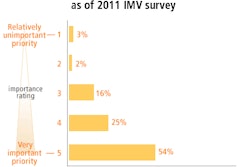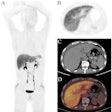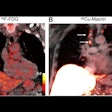Dear AuntMinnie Member,
It's a busy news day in medical imaging, so let's get started!
First off, Japanese industrial giant Fujifilm announced today that it has reached an agreement to acquire U.S. compact-ultrasound developer SonoSite for nearly $1 billion. The deal confirms rumors that had surfaced a month ago that SonoSite might be on the block, although at the time Samsung was mentioned as the potential acquiring firm, not Fuji.
The ultrasound business appears to be well into another round of consolidation not unlike the one in the late 1990s and early 2000, when U.S. firms such as Diasonics, ATL, and Acuson were all gobbled up by multimodality OEMs. This time, however, the deals are being driven from the Asia-Pacific region, where companies such as Hitachi, Samsung, and now Fuji are pushing the consolidation.
Get the scoop on today's deal by clicking here, and check back in our Ultrasound Digital Community at ultrasound.auntminnie.com in the days to come for more analysis on what this new acquisition means.
Angio volume slows
Next up is an article in our Digital X-Ray Community on slowing procedure volume at U.S. vascular angiography labs. A new market research report by IMV Medical Information Division indicates that procedure volume has slowed to a 1% annual growth rate, compared with greater than 4% annual growth in past surveys.
The report mentions a number of factors behind the slowdown, including the migration of some noncardiac angiography procedures out of radiology's purview and into other specialties, such as hybrid operating rooms or dedicated vascular labs.
That said, there is some room for growth in angio lab sales, particularly as many facilities move to replace systems that use analog-based image intensifier technology with units that use flat-panel digital detectors. Learn more by clicking here, or visit the Digital X-Ray Community at xray.auntminnie.com.
Covidien to spin off moly unit
Finally, healthcare conglomerate Covidien announced today that it plans to spin off its pharmaceutical business, which includes the company's activities in distributing generators that convert molybdenum-99 to technetium-99m.
Molybdenum-99 is a key radioisotope that is the precursor to technetium-99m, a widely used cardiac radiopharmaceutical. But sales of the generators have been plagued by supply interruptions from nuclear reactors that are the sole sources of molybdenum -- at least until other technologies for moly production come online.
How will the spin-off affect moly supplies, which are already precarious? No one knows for sure, but you can read all about today's news by clicking here, or by visiting our Molecular Imaging Digital Community at molecular.auntminnie.com.
Disclosure notice: AuntMinnie.com is owned by IMV, Ltd.




















